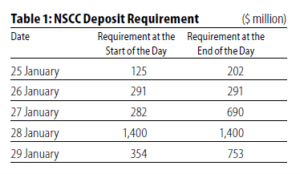This article first appeared in the Economic & Political Weekly on 12 November 2022.
Monetary Policy Debates in the Age of Deglobalisation
This article is the first in a series of two articles on monetary policy debates in the age in which deglobalisation is a buzzword. The ongoing monetary policy debates of the age will be discussed by focusing on macroprudential measures, capital controls and central bank independence in Part II.
Introduction
In a recent article, Kornprobst and Wallace (2021) defined deglobalisation as a movement towards a less connected world, characterised by powerful nation-states, local solutions, and border controls rather than global institutions, treaties, and free movement. If this is the definition of deglobalisation, then globalisation must be a movement in
Articles by Ahmet Öncü & T.Sabri Öncü
Climate crisis, global debt, and the Fermi paradox – a proposal to the IMF
November 16, 2021This article first appeared in the Indian journal Economic and Political Weekly on 13 November, 2021.Fermi ParadoxIn a recent article, Yıldızoğlu (2021) reminded us of the Fermi Paradox, which can be summarised as: Although the probability of the existence of other forms of life in the universe is sufficiently high, why have we not met any?Enrico Fermi, the Italian–American physicist and the creator of the world’s first nuclear reactor, was probably not the first person who asked: “but where is everybody?” However, the paradox he formulated led astronomers, astrophysicists, planetary scientists, and others to offer more than a dozen explanations.One of these explanations is reminiscent of our civilisation: Intelligent life self-destructs. Through weapons of mass destruction, planetary
Read More »Climate crisis, global debt, and the Fermi paradox – a proposal to the IMF
November 16, 2021This article first appeared in the Indian journal Economic and Political Weekly on 13 November, 2021.Fermi ParadoxIn a recent article, Yıldızoğlu (2021) reminded us of the Fermi Paradox, which can be summarised as: Although the probability of the existence of other forms of life in the universe is sufficiently high, why have we not met any?Enrico Fermi, the Italian–American physicist and the creator of the world’s first nuclear reactor, was probably not the first person who asked: “but where is everybody?” However, the paradox he formulated led astronomers, astrophysicists, planetary scientists, and others to offer more than a dozen explanations.One of these explanations is reminiscent of our civilisation: Intelligent life self-destructs. Through weapons of mass destruction, planetary
Read More »The Battle of GameStop
March 16, 2021This article originally appeared in the Indian journal Economic and Political Weekly on 13 March 2021.What the battle of GameStop has brought into light is that democracy in financial markets is just a myth: whoever controls the valves, controls the flow. The market-making and brokerage markets in the United States are heavily oligopolistic markets in which market-makers and brokers extract huge rents from the retail traders. Although the retail traders involved in the battle appear unaware of what they did, they brought these markets to a near collapse, which the oligopolists managed to stop. Theirs is neither a revolution nor Occupy Wall Street, but a novel form of collective action expected to continue.To summarise the GameStop debacle, on which there are already at least five movies
Read More »The Battle of GameStop
March 16, 2021This article originally appeared in the Indian journal Economic and Political Weekly on 13 March 2021.What the battle of GameStop has brought into light is that democracy in financial markets is just a myth: whoever controls the valves, controls the flow. The market-making and brokerage markets in the United States are heavily oligopolistic markets in which market-makers and brokers extract huge rents from the retail traders. Although the retail traders involved in the battle appear unaware of what they did, they brought these markets to a near collapse, which the oligopolists managed to stop. Theirs is neither a revolution nor Occupy Wall Street, but a novel form of collective action expected to continue.To summarise the GameStop debacle, on which there are already at least five movies
Read More »

